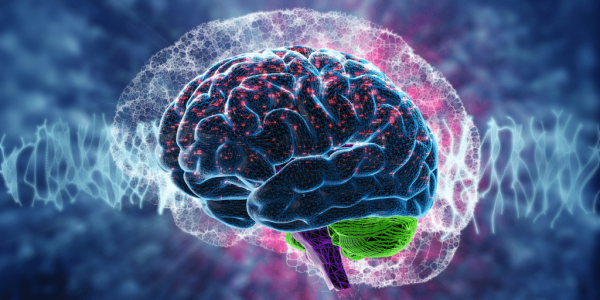The Science Behind Gambling Addiction
Risk-taking is ingrained in human nature. Every day, whether it be playing slots or riding a skateboard, we partake in activities that have both a risk and a reward potential.
Gambling is a part of this nature, which is said to afflict as much as 1% of the populace. Plans to prohibit online gambling using credit cards and expand access to treatment are recent initiatives to address the issue. But let’s dive deeper into the addiction itself.
What Is Compulsive Gambling
The irrepressible drive to continue gambling despite the negative effects it has on your life is known as compulsive gambling, also known as gambling disorder. When you gamble, you're putting something you value at risk in the hopes of winning something more valuable.
Like alcohol or drugs, gambling may cause the brain's reward system to become overstimulated, which can result in addiction. If you have a compulsive gambling issue, you can keep chasing gambling activities that end in losses, deplete your funds, and put you in debt. To feed your addiction, players can try to hide the issues or even start stealing or engaging in fraudulent activities.
Compulsive gambling is a dangerous problem that may ruin lives. Even though treating compulsive gambling can be difficult, many individuals who battle the disorder have found relief via professional therapy.
Who Is at Risk of Becoming Addicted to Gambling
Even though the majority of people who play cards or place bets never develop a gambling addiction, several traits are more frequently linked to compulsive gambling:
Mental health issues
Compulsive gamblers frequently struggle with drug abuse, personality disorders, depression, and/or anxiety. Additionally, attention-deficit/hyperactivity disorder (ADHD), obsessive-compulsive disorder (OCD), and bipolar syndrome may also be linked to compulsive gambling (ADHD).
Age
Younger and middle-aged people are more likely to suffer from compulsive gambling. The likelihood of developing compulsive gambling increases if a person gambles in their youth. However, compulsive gambling may also be an issue for older adults.
Sex
Men are more likely to struggle with compulsive gambling than women. Gamblers who are female tend to start later in life and may develop addictions more quickly. However, there is a growing similarity between the gambling habits of men and women.
Pressure from friends or family
There is a higher likelihood that you will develop a gambling issue if your friend or relative has the same issue.
Drugs used for the treatment of restless leg syndrome and Parkinson's disease
Dopamine agonist medications have an uncommon adverse effect that might lead to obsessive behaviors in certain people, including gambling.
Certain personality traits
Your chances of developing compulsive gambling may rise if you are intensely competitive, a workaholic, impulsive, restless, or quickly bored.
How Gambling Affects the Brain
Dopamine is a feel-good hormone that the brain produces when we win at gambling. However, if we bet frequently, our brain becomes accustomed to dopamine, which makes experiencing a winning feeling challenging. We might need to bet more and more to have the same amount of pleasure.
Some gambling games, such as roulette and slots, give us the impression that we are winning even when we are essentially not. This makes us want to keep gambling to have that winning feeling again. As we learn, the brain continuously adapts, forging associations and forming patterns. This proves that it is never too late to train our brains.
It is also important to learn the importance of responsibility, and the concept of responsible gaming has been gaining popularity for a good reason. You can learn more about responsible gaming at iGaming PA, a great site for people who enjoy gaming in the state of Pennsylvania. If you are a citizen of New Jersey and want to learn how to gamble responsibly - visit iGaming NJ.
Pricey Gambling Marketing
Over the past year, the majority of big businesses have spent hundreds of millions of dollars using celebrity-filled advertising to promote their products on TV and social media. Jerry Rice pouring Gatorade on a successful DraftKings bettor or any other star-studded ad is probably familiar to everyone who uses a computer, watches television, owns a smartphone, or listens to the radio. It is reasonable to argue that anybody older than 12 knows where and how to place a bet on whatever there is to bet on due to the barrage's relentlessness, consistency, and wide distribution.
This doesn’t happen by accident. Making sports betting look similar to buying bread at the grocery store is a deliberate and meticulous approach. But the difference is that gambling addiction can and will harm people and families. According to the Wall Street Journal, the National Problem Gambling Helpline received an average of 22,500 calls per month in 2021, up from a monthly average of 14,800 the year before. Therefore, the connection between gambling ads and compulsive gambling cannot be overlooked.














